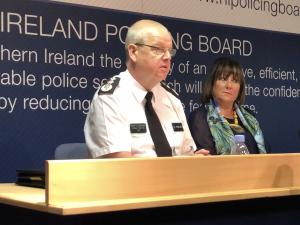
By David Young, PA
Northern Ireland’s police chief has insisted that contentious elements of a report on South Armagh policing will not go ahead.
Simon Byrne told members of the Policing Board that he needed to “clarify” that a proposal to relocate police station memorials to murdered colleagues out of public sight was a “non-starter”.
📽️The Chief Constable has stressed in a press conference, after addressing the Policing Board, that memorials to officers would only be moved or relocated in the event of station closure. pic.twitter.com/ENuraoENqx
— Q Radio News (@qnewsdesk) September 2, 2021
Mr Byrne also said reference in the report to exploring the potential for “joint operations” involving the PSNI and Garda did not mean officers from one force patrolling in the other’s jurisdiction, rather them working in conjunction on either side of the border.
He said the only proposal for officers to cross the border was in relation to “hot pursuit” incidents, but he made clear that could only happen with legislative changes agreed by politicians.
Responding to a backlash from unionists about aspects of the review on how the PSNI operates in South Armagh, the police chief told his oversight board in Belfast that a proposal for Irish language signage at local stations would remain “dormant” without a legislative framework that covered the wider public sector.
Mr Byrne, who has faced renewed calls to quit from some unionists, said aspects of the report published on Tuesday had been misinterpreted.
🎥 @ChiefConPSNI has insisted contentious elements of a report on south Armagh policing will not go ahead including a proposal to relocate police station memorials to murdered colleagues.
— Q Radio News (@qnewsdesk) September 2, 2021
He said they were included in the final document to ensure transparency. pic.twitter.com/0XE6sLxokL
He explained that the document had been developed by a police working group and then passed to senior commanders for approval.
The chief constable said at that point a number of the more contentious proposals were ruled out.
But he said reference to those proposals were still included in the final document to ensure transparency around the working group’s original recommendations.
“I want to take this opportunity to set the record straight on what was and what has not been agreed and I hope that this will provide clarity and assurance to you and others going forwards and calm some of the rhetoric,” he told board members.
He said it was not true that all 50 recommendations in the report were a “fait accompli”.
“It’s important that despite the unhelpful rhetoric from some quarters there is no misunderstanding on a number of critical issues,” Mr Byrne added.
🎥 @ChiefConPSNI says he recognises a recommendation to remove memorials for fallen soldiers at police stations has caused upset, following a report into policing in south Armagh.
— Q Radio News (@qnewsdesk) September 2, 2021
He says constant calls for his resignation can be a distraction but he’s committed to the service. pic.twitter.com/2I9feRwMg0
He said that while memorials would not be moved in operational stations he said in stations earmarked for closure – such as Crossmaglen – a “sensitive” process would be required to manage their transition out of the building.
“Far from disrespecting or forgetting our 30 colleagues (in South Armagh) who paid the ultimate price, I think we can do better than what we currently have in place and, over the horizon, plans for a new police museum may reflect this,” he said.
Mr Byrne added: “In terms of cross-border policing, let me be categorically clear on this issue – wording within the report has been misunderstood. Neither the review, nor the police service, at any time has considered or envisioned all-island policing structures and joint day-to-day patrolling.”
He cited breath-testing as an example of the sort of “joint” operation the PSNI wanted to explore with gardai.
“If you’re running a breath-test operation, it would probably be prudent to try and seek agreement that to prevent people turning around or fleeing, there are vehicles on each side of the border,” he said.
“That’s what we mean by ‘joint’, we do not mean a police officer from here working in another country, nor do we mean a police officer from Republic working here.”
A number of unionist representatives on the board welcomed Mr Byrne’s comments but they questioned why the contentious proposals had been referenced in the published report if the PSNI had no intention of progressing with them.
DUP member Thomas Buchanan said the clarification was “helpful”.
But he added: “You did have the opportunity to provide the clarity on the media in the last few days and you chose not to do that.
“And I think if you had have done that, that would have eased a lot of tension and the concern within the unionist community, which also caused further diminishing of the support for the police at the top level.”
UUP member Mike Nesbitt said: “I do to an extent welcome the assurances you’ve given today that the only moving of memorials will be in the event of a station closure.
“But, as they say in politics, when you’re explaining, you’re losing.”

(The Chief Constable said elements of the report into policing had been "misinterpreted")


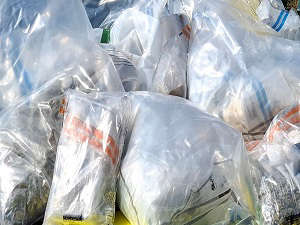 Drugs worth £860,000 seized following search in Kilkeel
Drugs worth £860,000 seized following search in Kilkeel
 Additional public transport announced ahead of Open golf event at Royal Portrush
Additional public transport announced ahead of Open golf event at Royal Portrush
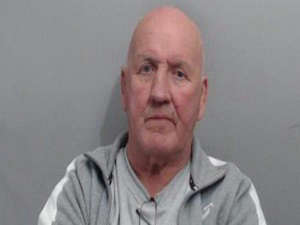 Man who forced vulnerable women into prostitution given seven-year sentence
Man who forced vulnerable women into prostitution given seven-year sentence
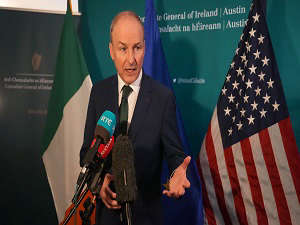 Taoiseach announces further one billion euro for Shared Island Fund
Taoiseach announces further one billion euro for Shared Island Fund
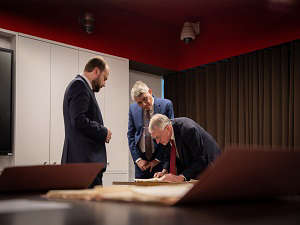 Details of two Troubles archive projects announced by Government
Details of two Troubles archive projects announced by Government